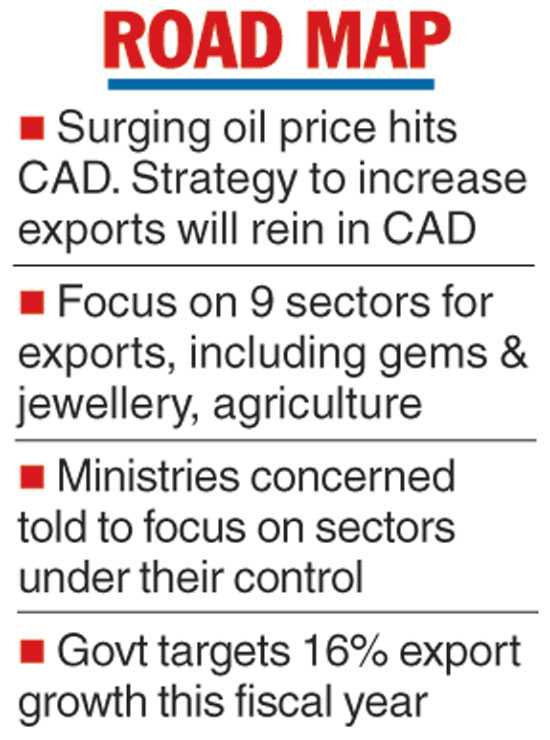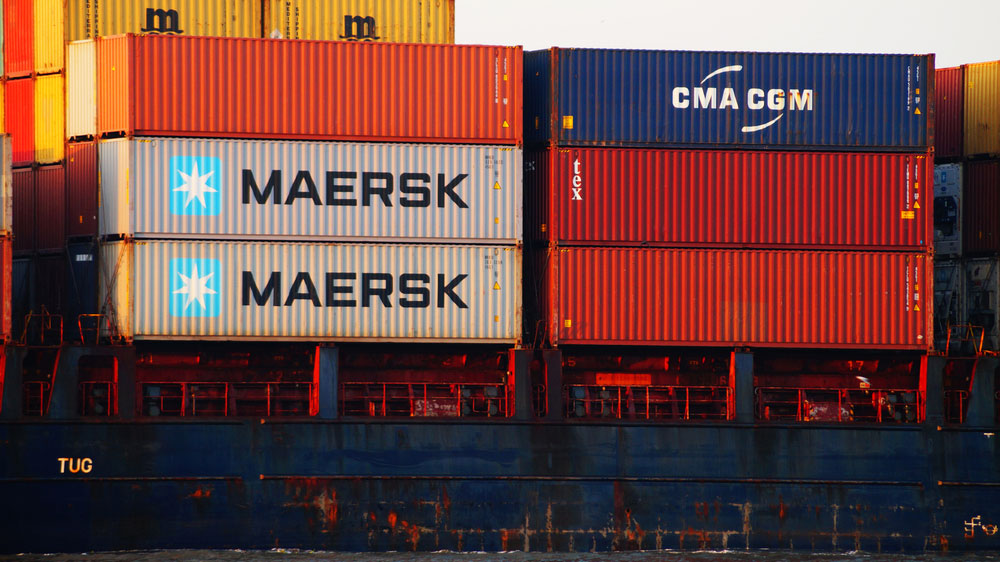Global connection
Ganesh Kumar Gupta, president of the Federation of Indian Export Organisations, said exports have always been influenced by the growth in global trade. The subdued global trade forecast of 3.9 per cent in 2018 and 3.7 per cent in 2019 against 4.7 per cent in 2017 would have an adverse impact.
Exports have done well in the first five months of the current fiscal but are likely to face greater challenge in months to come, he said.
Gupta said the flow of credit was critical to higher growth in exports.

The Telegraph
Fire-fighting measures to bolster the rupee and arrest the widening trade deficit are likely to be discussed at a key inter-ministerial meeting on Thursday to be chaired by commerce minister Suresh Prabhu.
Representatives from the department of economic affairs, coal ministry, steel ministry, oil ministry and department of pharmaceuticals are expected to attend.
The commerce ministry has identified nine sectors — gems and jewellery, leather, textiles, engineering, electronics, chemicals, pharma, agriculture and marine products – to achieve at least 16 per cent growth in exports in 2018-19. India’s exports were $303 billion in 2017-18.
The inter-ministerial meeting assumes significance as the rupee has hit an all-time high of 73.34 against the dollar, which would raise India’s import bill and widen the trade deficit. Crude oil prices spiked to $85 per barrel putting pressure on imports.
The government had decided earlier last month to adopt a multi-pronged approach to tackle the continued fall in the rupee, which would involve monetary policy changes and faster intervention in the foreign exchange market, encouragement to rupee bonds to bolster dollar reserves and trade measures to cut imports.
However, the measures have not yielded much results as foreign investors have remained net sellers of local debt and the Sensex has remained on a roller coaster.
A fear of contagion of emerging market currencies because of a massive fall in the value of the Turkish lira has seen most emerging market currencies getting battered — including Chinese renminbi, Russian rouble, South African rand, Brazilian real and Indonesian rupaiyah.
Officials said the commerce minister is likely to ask various ministries to select sectors that have strong export potential and focus on services exports. The department of chemicals has sought faster environmental clearances for agrochemicals and said it wanted to set up a chemical inventory for exports.
Emphasising sector specific strategies, officials said the export of defence products which are currently at around Rs 5,000 crore can be increased to Rs 35,000 crore.
The fall in the rupee not only makes India’s energy imports costlier but also means the country has to shell out more in repaying foreign currency short-term debt. India’s oil import bill is expected to go up $25 billion, while the cost of servicing short-term borrowings would go up $9.5 billion.











